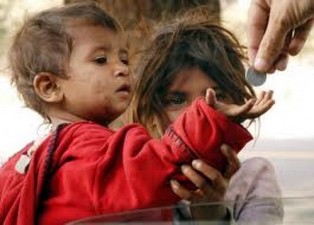India ranked lowest among South Asian country in Global Hunger Index
India has been ranked at the 103rd position among 119 countries on the GHI (Global Hunger Index), says a report. According to the report, prepared by Welthungerhilfe (not for – profit group) and Concern Worldwide (works towards improving lives of poor people), India is among the 45 countries that have “serious levels of hunger”.
The report also warned that the progress towards a 2030 zero hunger target that was agreed upon by leaders across the world was “under threat”.
The GHI, now in its 13th year, ranks countries based on four key indicators – under nourishment, child mortality, child wasting and child stunting. Child wasting refers to share of children under the age of five who have low weight for their height, reflecting acute under nutrition.
“Hunger stubbornly persists in many countries and is actually increasing in others. Multiple countries have higher hunger levels now than in 2010, and approximately 45 countries are set to fail to achieve low levels of hunger by 2030,” said Concern Worldwnide US CEO Colleen Kelly, as per local news.

India is ranked below many neighbouring countries, including China (25th spot), Nepal (72), Myanmar (68), Sri Lanka (67) and Bangladesh (86). Pakistan is placed at the 106th position. While noting that hunger varies enormously by region, the report said this year’s GHI scores for South Asia and Africa south of the Sahara reflect serious levels of hunger.
Zero is the best score and a reading above 100 is the worst. The latter signifies that a country’s undernourishment, child wasting, child stunting, and child mortality levels are at the highest level, it noted.
Further, the report, released last week, said that the world has made gradual, long-term progress in reducing overall hunger, but this progress has been “uneven”. “Areas of severe hunger and under nutrition stubbornly persist, reflecting human misery for millions,” it added.
Since the number of forcibly displaced people is on the rise, and hunger is often both a cause and a consequence of displacement, the report said that actions need to taken by international community, national governments, and civil society, among others.
It also recommends various steps the countries could take to tackle this serious problem. Prioritizing resilience among the most vulnerable groups, better response to disasters, addressing inequalities, action to mitigate climate change are among measures suggested in the report.

